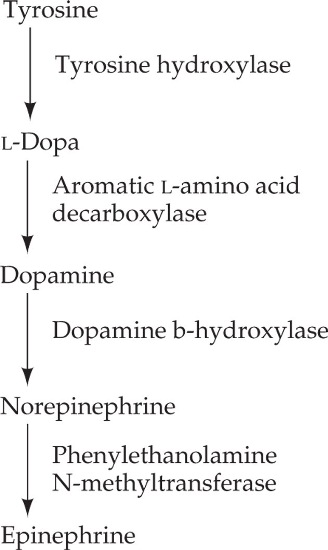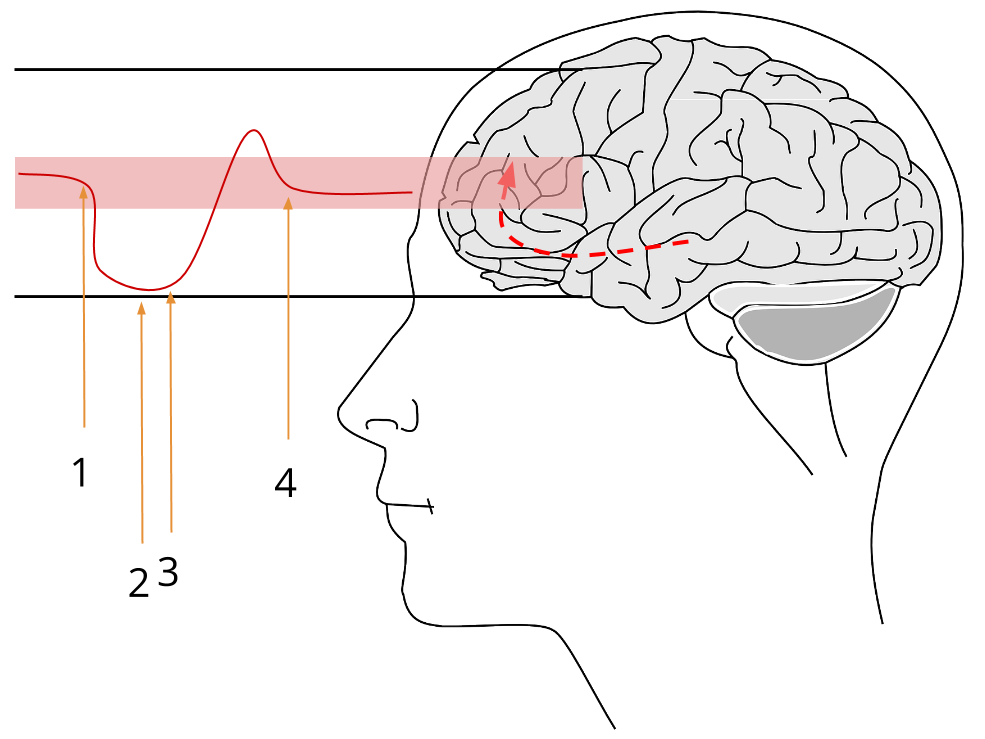
The following is a translation of Chris Michalk’s article “Wie der Botenstoff Dopamin dein Leben bestimmt” and looks at the role of neurochemicals in your life.
If I decide to publish something from fellow Authors, you know it’s top of the line content. Enjoy.
Chemical messengers and your life

Dopamine is a catecholamine.
Epinephrine (adrenaline) and norepinephrine (noradrenaline) also belong to this class of chemical messengers.
All three of them (dopamine, epinephrine and norepinephrine) are synthesized from the amino acid tyrosine.
Some of you might be familiar with dopamine’s role in addiction.
Dopamine gained notoriety in the 1950’s, when animal studies discovered a region in the brain that is subject to electrical stimulation. When rats learned to stimulate that particular region themselves, they wouldn’t stop pushing the button. The rats would even forgo food and drink to get their next dopamine fix.
I said it before and I’ll say it again: Dopamine makes the world go round.
Many of our actions stem solely from our desire to avoid dopamine lows.

Why your dopamine levels fluctuate heavily during everyday life
In the illustration above we see the schematic depiction of a brain. Just behind the forehead sits the prefrontal cortex, which is stimulated by a region in the center of the brain… and the dopamine rush begins – behind the forehead.
Since the prefrontal cortex is the area in the brain responsible for planning, organizing and structuring our lives, neurochemicals evidently influence our decision making process.
The prefrontal cortex essentially maintains a certain amount of dopamine, or better yet, a certain dopamine level. This base-level of dopamine makes life worth living and is the reason why we all (want to) live – in contrast to depression (we’ll get to that later).
The base-level is higher in some and lower in others. You might need a little more, while others might need a little less. This natural reference range is colored red in our illustration.
Now, let’s generate different dopamine concentrations in the prefrontal cortex and see what it does to your life:
- You come home after a long day’s work, having fantasized all-day about the pizza* waiting for you in the freezer. You can almost smell it, taste it even. You arrive home, open the freezer, the pizza is gone. Your girl-/ boyfriend ate it.
- Your dopamine levels crash. From one moment to the next, you hit rock-bottom.
- Before you make your way into the living room to confront your partner, she/ he calls your name. You enter the room and see the table overflowing with every delicacy you can imagine. Your dopamine shoots through the roof.
- Not for long, though. You remember that someone has to clear the table and do the dishes. Again, your dopamine levels take a hit. Nothing compared to the crash you experienced moments ago, however, because you know it won’t take long.
(* pizza was chosen as an example, since fast-food powerfully stimulates our dopamine system.)
Ideally, at point 4 you’re thinking about your favorite show, which you’ll be watching afterwards. And suddenly doing the dishes isn’t so bad.
There are individuals that like their basal dopamine level and don’t “explode” when they think of food, sex or their favorite TV-show.
Others however, need the rush and require frequent stimulation throughout their days.
What they all have in common is this: Nobody likes dopamine lows. The worst of which are caused by disappointment, when desires and expectations aren’t met.
In his book, David Rock talks about these dopamine-lows and warns us: Never (!) make decisions when your dopamine levels are down. In this state, he says, you cannot even think straight.
Brings me to the subject of depression.
Depression and lack of sex-drive due to dopamine “shortage”
Depressed individuals display much lower dopamine levels. Meaning, they have a low affinity for life. To them, life isn’t much fun. They also require a much more potent stimulus to raise their dopamine. Unlike you, these people don’t get excited when they think of sex.
Imagine losing the desire to do what you were put on this earth to do (–> procreate). From an evolutionary perspective, this is about as bad as it gets. Something went massively wrong with these people (their biochemistry). And thanks to the vicious dopamine cycle, depressed individuals keep making bad decisions. They have no choice, as their brain, their neurochemistry won’t let them.
It doesn’t have to be that way, though.
We can try to modulate our brain to rely on less dopamine by increasing receptor sensitivity – similar to insulin sensitivity. We would thus require less to feel good and regain the ability to enjoy the “little things”.
Meaning, you won’t need to watch three action movies every night. A good conversation with your new neighbor would suffice.
Got it?
That’s what this is all about.
(Note: Dopamine is but a part of the neurotransmitter orchestra. There are many more, and we’ll talk about those eventually)
Where’s the rest of the article?